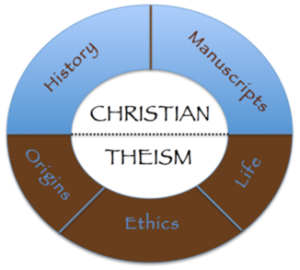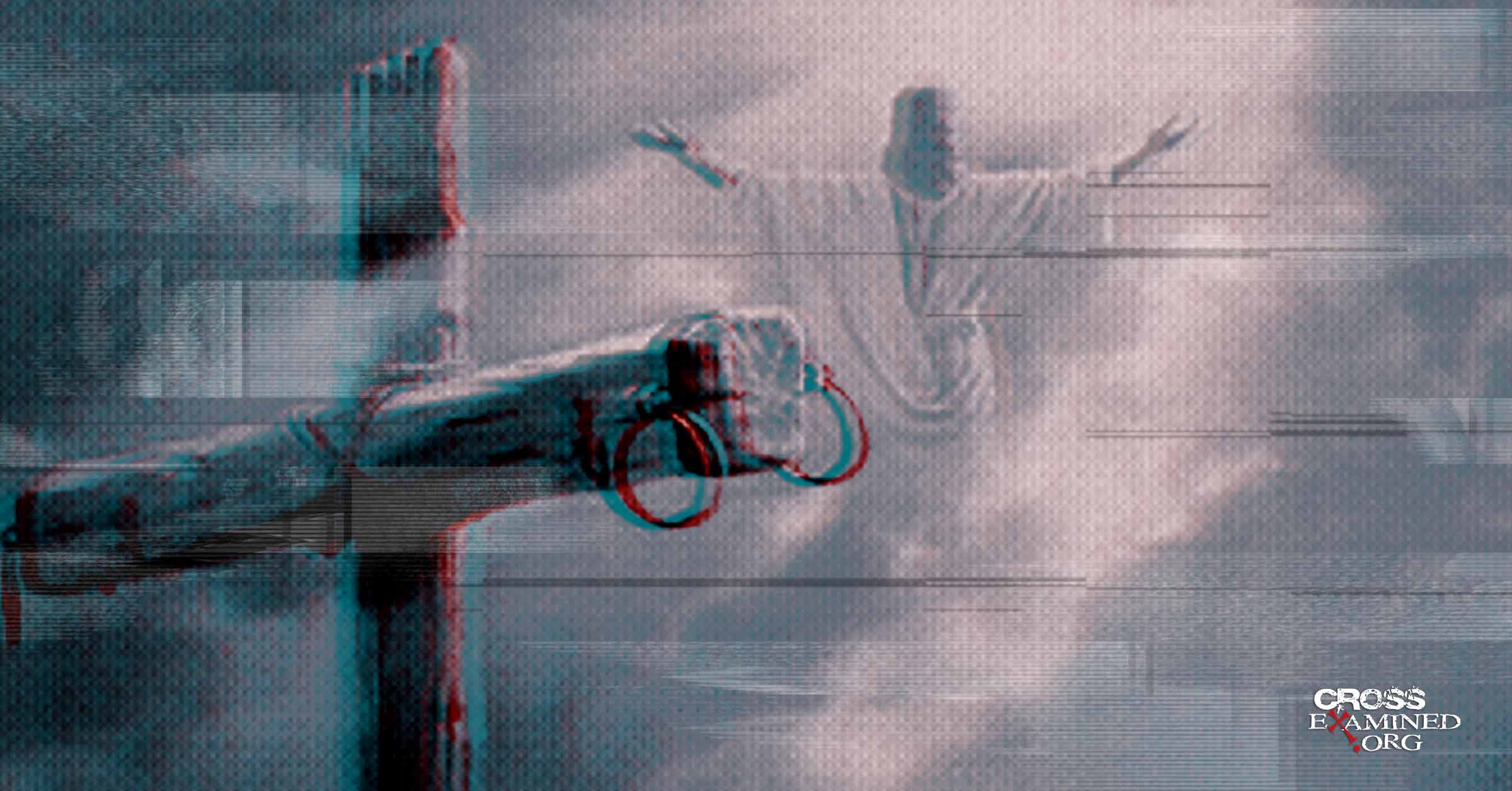By Bob Perry
The church service at our suburban Cincinnati non-denominational church had barely ended when I started receiving text messages from friends. All of them shared some version of the same question my wife and I were asking each other about the sermon we had just heard from a visiting preacher: “What in the world was that?!” The simple answer was that we had unknowingly let a wolf in the sheep pen.
The sermon was delivered by a man who on the surface was someone we could trust. He was a professor from a reputable Christian university, with master’s degrees in both Divinity and New Testament Studies and a Ph.D. in Philosophy/New Testament Exegesis. He had preached at our church on several occasions over the years. His sermons had never been notably good or bad. But this Sunday morning was different. He had more than a message to deliver.
He had an agenda.
Scripture Twisting
The visiting preacher’s message was based on Ephesians 2:11-22, a text that starts with a “therefore” connecting it to the previous passage. That means it’s sandwiched between Paul’s explanation of Christ’s person and mission at the beginning of Chapter 2, and his clarification in Chapter 3 that the Gospel is also meant for the Gentiles.
The unmistakable point of this passage is that the Law, which had excluded non-Jews, had been superseded by the grace we receive through Christ’s sacrifice. It’s about Spirit-vs-Law, grace-vs-works. It’s a call to unity wherein Paul was exhorting his readers to recognize that the Gentiles were no longer “foreigners and aliens” but are fellow members of God’s household. He was clarifying a theological point about the unifying nature of salvation and the shared solution to our human rebellion and hostility toward God.
Changing the Subject
Our guest preacher acknowledged all this in passing. But four minutes into his message, things took an insidious turn. His focus subtly shifted from the solution for man’s hostility toward God to the reality of human beings’ hostility toward one another. Suddenly, we were hearing about diversity, inclusion, “minority status,” and the human inclination for conflict.
He had changed the subject. His goal had not been to exegete the passage in question; it had been to deliver a cultural message.
Once the subtle change of subject morphed into the central point, we were treated to a lecture about a lack of diversity in the demographics of typical suburban midwestern community churches like ours. We were warned about Evangelical Christianity’s bent toward a toxic “Christian Nationalism.” These topics were lead-ins to the message he really wanted to deliver. That came when he began reading us letters he had received from his diverse list of friends in response to a query he had offered them: “What do you want white American Christians to understand about Christians like you?
The specter of division is built right into his question. And it didn’t take long for it to bear fruit.
Critiquing People They’ve Never Met
Though he later denied knowing much about Critical Race Theory (CRT) or having any intention of talking about it, the letters he read could have formed a bullet point summary of its tenets. They included the declaration that “it’s not enough for white Christians to be ‘”non-racist,” we need them to be ‘anti-racist,”’ and the demand that “we need white brothers and sisters to not only acknowledge their own racist tendencies, but to also confront and challenge the racism of family, friends, co-workers, and church folk.” We were called on to “reimagine and reinvent systems that make it more difficult for African Americans to realize the American dream.” And we were “comforted” in learning that a woman who had never met a single person in our congregation had assured us, “I do not hate you. I just pray that one day I will be able to wholeheartedly forgive you.”
It isn’t hard to imagine the damage this thirty-minute cultural hand grenade caused when it detonated inside our church. So, it pays to stop at this point and reflect on the claims and assumptions built into these serious accusations and ask how they are in any way related to the text in Ephesians 2:11-22.
They aren’t. And that’s the problem.
Eisegesis -vs- Exegesis
Our visiting preacher wasn’t exegeting the meaning of the text or drawing an application from (ex in Greek) it. He was imposing his own predetermined view into (eis in Greek) the passage. That’s called eisegesis. It’s the opposite of exegesis.
No doubt, racism is a blight on society. We all need to talk about it. But making generalized assumptions about the actions and attitudes of entire groups of people we don’t know, and segregating “white Christians” from “Christians of color,” are not good alternatives for seeing every human as being made in the image of God.
Racism was his topic of choice that day. Unfortunately, the method he used to address it is a microcosm of a trend that is metastasizing inside the church. Our congregation saw it in real-time. But the more dangerous kind of eisegesis happens slowly and insidiously.
Creeping on the Sheep
The tentacles of “wokeness” are slithering into our churches under the guise of social justice, inclusivity, tolerance, and love. But the head of the hydra is the same as it’s always been. It’s the human propensity to interpret God’s word through the lens of self.
One of the main features of our guest preacher’s sermon was the repeated exhortation to accept his point of view based on the experiences of others. Though the logical flaw in that practice is obvious – alternative experiences can make the opposite point – it turns up again and again inside the church.
Unlike the full-frontal assault our congregation faced, the more common approach is subtle. And that’s what makes it so dangerous. Alisa Childers recently exposed it stealthily baked into a wildly popular churchwide youth curriculum. It’s easier to access young minds in their formative stages when parents aren’t in the room.
When Your Guard is Down
Christian colleges are no different. Astute students expect to confront the all-too-typical atheist professor at the State University. They arrive at school with their antennae up. But some choose to avoid that kind of opposition by attending a Christian college. It seems like a safer environment. Parents and students assume the faculty and staff at a Christian school will be the type to critique the culture from a biblical point of view instead of the other way around. So, they enter with their guard down.
But the fences around Christian colleges don’t keep out bad ideas. Remember, our visiting preacher had been a professor at one for many years. How many young minds had been influenced by his eisegetical methods during that time?
Maybe those who engage these issues in these ways are doing so with pure motives. Maybe they’re simply mistaken. We can be charitable and allow that possibility. But that doesn’t mean we have to be passive when it happens. Beware the wolves in sheep’s clothing. They’re not going away. And they’re finding new ways to sneak into the sheep pen.
Recommended resources related to the topic:
Is Morality Absolute or Relative? by Dr. Frank Turek DVD, Mp3 and Mp4
When Reason Isn’t the Reason for Unbelief by Dr. Frank Turek DVD and Mp4
____________________________________________________________________________________________________________________________________________________
Bob Perry is a Christian apologetics writer, teacher, and speaker who blogs about Christianity and the culture at truehorizon.org. He is a Contributing Writer for the Christian Research Journal and has also been published in Touchstone, and Salvo. Bob is a professional aviator with 37 years of military and commercial flying experience. He has a B.S., Aerospace Engineering from the U. S. Naval Academy, and an M.A., Christian Apologetics from Biola University. He has been married to his high school sweetheart since 1985. They have five grown sons.
Original Blog Source: http://bit.ly/3kzw4hz
An earlier version can be found in Salvo Magazine at: https://salvomag.com/post/dances-with-wolves












